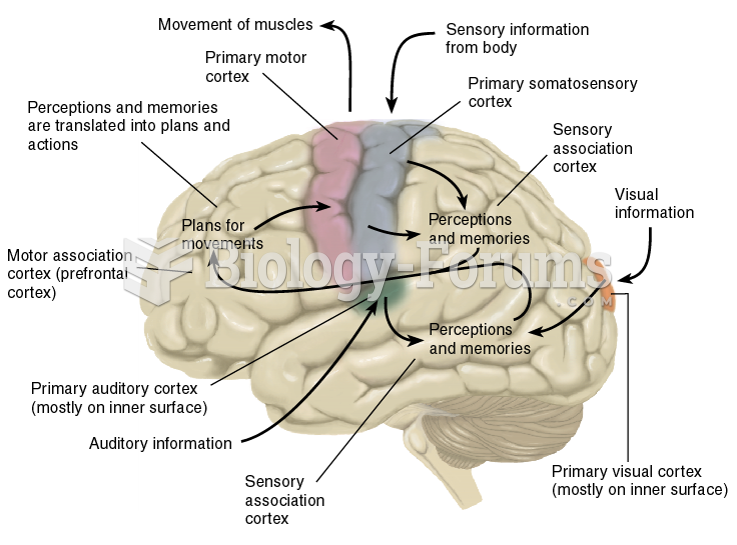|
|
|
About 3.2 billion people, nearly half the world population, are at risk for malaria. In 2015, there are about 214 million malaria cases and an estimated 438,000 malaria deaths.
In 1885, the Lloyd Manufacturing Company of Albany, New York, promoted and sold "Cocaine Toothache Drops" at 15 cents per bottle! In 1914, the Harrison Narcotic Act brought the sale and distribution of this drug under federal control.
Drying your hands with a paper towel will reduce the bacterial count on your hands by 45–60%.
Normal urine is sterile. It contains fluids, salts, and waste products. It is free of bacteria, viruses, and fungi.
Cutaneous mucormycosis is a rare fungal infection that has been fatal in at least 29% of cases, and in as many as 83% of cases, depending on the patient's health prior to infection. It has occurred often after natural disasters such as tornados, and early treatment is essential.
 This 11-month old girl demonstrates one of the abilites of a child of this age group - creating a to
This 11-month old girl demonstrates one of the abilites of a child of this age group - creating a to
 A blood smear. The smear reveals representative cells from each formed element group: red blood cell
A blood smear. The smear reveals representative cells from each formed element group: red blood cell





